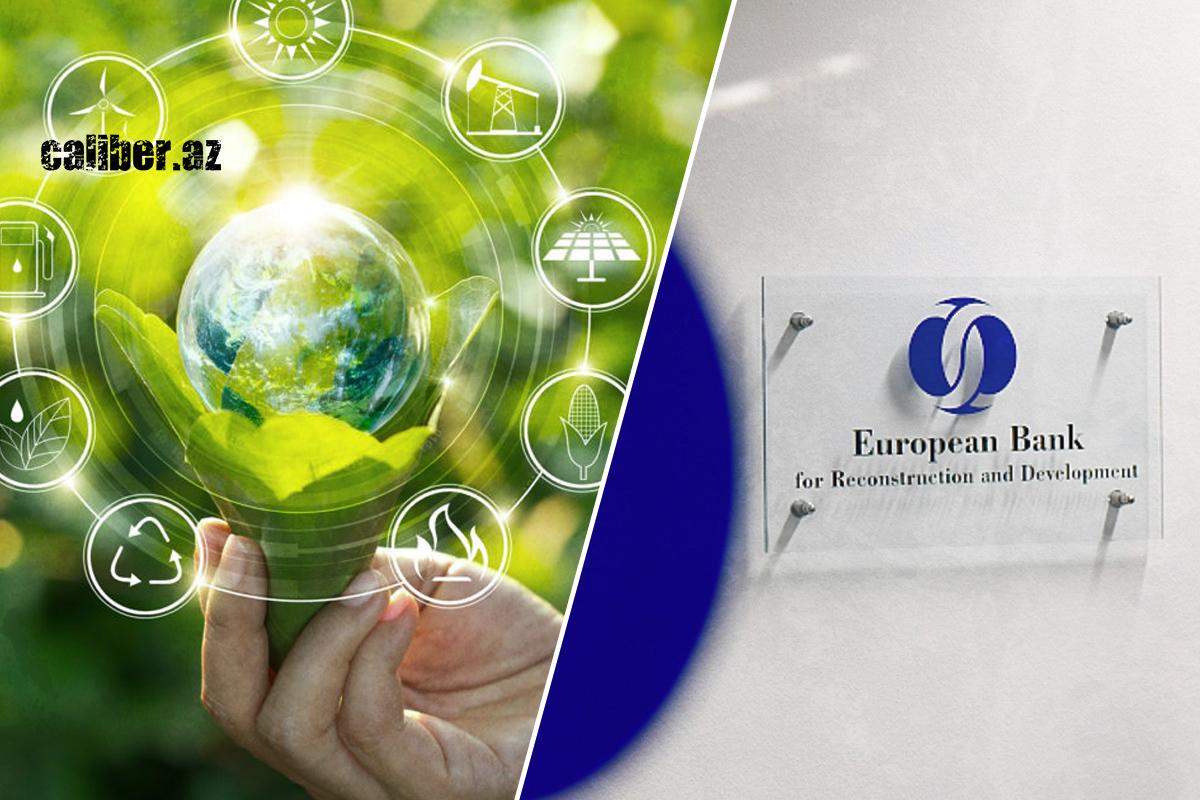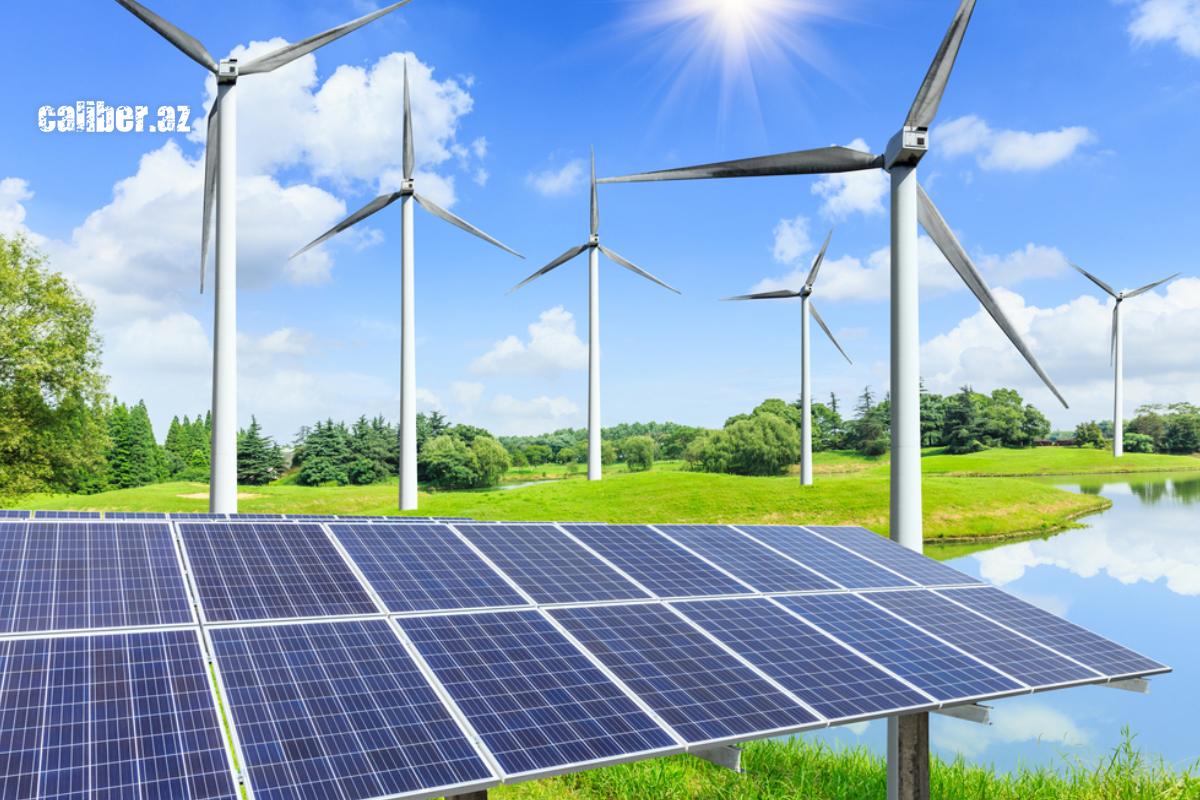From green energy to export: Azerbaijan, EBRD take big step forward in collaboration Caliber.Az bares details of the deal
Azerbaijan is expanding its cooperation in electricity and the "green" agenda with the European Union's main financial institution - the European Bank for Reconstruction and Development (EBRD). For example, the EBRD's board of directors will soon approve a $30 million loan to Azerenerji OJSC, which will be used to purchase autotransformer equipment for substations under construction in the country. The project will facilitate better integration of renewable energy (RE) capacity and increase the flexibility of the transmission segment of Azerbaijan's power system. Overall, the EBRD's new country strategy provides ample opportunities for energy efficiency, renewables and power export in Azerbaijan.
The European Bank for Reconstruction and Development is one of the oldest and most active foreign financiers of Azerbaijan. Since the beginning of the full partnership between Azerbaijan and the Bank in 1992, more than 3.624 billion euros have been allocated to our republic to implement 189 projects. At the beginning of 2024, the portfolio of Eurobank in Azerbaijan on 31 projects will amount to 897 million euros, and there are no plans to reduce the intensity of the financing. Notably, the EBRD intends to provide Azerbaijan with $750 million of loans from 2023 to 2025, with a substantial part of the loans going to "green" industries, according to the new EU policies.
Overall, the EBRD believes that Azerbaijan has significant potential to become a leader in the transition to low-carbon energy and green industry (low energy consumption and low waste), as the government recognises the potential of renewable energy and the importance of building appropriate sustainable infrastructure in line with the country's commitments under the Paris Climate Agreement.
"Green energy is a key priority for Azerbaijan, and in this regard, the EBRD is working very closely with the Ministries of Energy and Economy and is actively supporting decarbonisation programmes in the country at both the investment and policy levels," said Kamola Mahmudova, Head of the EBRD's Azerbaijan Country Office.

To achieve these goals, the EBRD's focus in the 2019-2024 country strategy has shifted to cooperation in the green economy, alternative energy, energy efficiency projects and the creation of infrastructure for electricity exports. In particular, under the EU's Green Cities Programme (GCAP), one of the first initiatives in this area was a 10 million euro loan for a project to improve street lighting in the city of Ganja, introducing energy-efficient lighting sources and automated control and monitoring systems that will save energy and reduce network maintenance costs.
In 2022, the EBRD invested 21.4 million euros in the first private solar power plant in Baku's Garadagh district, and a year later signed a loan agreement to participate in a syndicated loan ($167 million) for the 240 MW Absheron-Khizi Wind Power Project (WPP). A further effort in this direction will be a $30 million loan to Azerbaijan for the purchase of autotransformer equipment for four substations operating in the country.
It is expected that on May 1 this year the Board of Directors of Eurobank will approve the granting of concessional financing to Azerbaijan for this project: the borrower of the loan will be the Ministry of Finance of Azerbaijan, and the responsibility for the implementation of the project will be attributed to Azerenerji.
The project as a whole will contribute to improving the quality of the "green" transition and will be the Eurobank's first attempt to modernise the national energy system, according to the EBRD's information distributed the day before. In particular, the upgrading of substations will increase the flexibility of Azerbaijan's grid to integrate renewable energy capacity. It will allow planned green generation to be connected to the grid, which is currently difficult due to various technical constraints.
The EBRD believes that the successful implementation of the new project will serve as an example for further grid reinforcement projects, which are crucial for the integration of renewable energy projects into the country's grid.
Azerbaijan's Energy Minister Perviz Shahbazov recently stated that "Azerbaijan expects to integrate eight wind and solar power plants into the national energy system by 2027 with the financial support of international financial organisations (IFIs)". According to the energy minister, financial support from the EBRD, World Bank structures and other leading IFIs will be actively used for this purpose.

The field of activity is very wide: today, large-scale construction of substations has begun in liberated Azerbaijani territories. In the future, these substations and the new high-capacity power lines that are being laid will be used to transport the "green" electricity generated by the energy complex of small hydroelectric, solar and wind power plants that is being built in Karabakh and Eastern Zangezur to Türkiye and other countries in the region. Including the newly constructed 330/110-kilovolt Jabrayil substation, the largest in the region, the electricity will be transmitted through the Zangezur Corridor Power System, where another 255-kilometre transmission line will be laid to NAR, where a Shakhtakhty substation of similar capacity will also be built. Another substation will then be built on the Nakhchivan section of the border with Türkiye to convert 330 kilovolts to 400 kilovolts, from where a 230-kilometre dual-circuit 400-kilovolt transmission line will be laid to Türkiye.
However, the potential for working with the EBRD doesn't only lie in the Karabakh region, which has been declared a "green" zone. Extensive construction of substations, transmission lines and renewable energy facilities will soon begin in the Nakhchivan Autonomous Republic. In particular, the construction of Ordubad HPP with a capacity of 36 MW and Tivi HPP with a capacity of 15.6 MW will continue in 2024. In 2023-2024, the overhaul of the water channel of Bilyav HPP is planned, as well as the reconstruction of the oldest HPP in the region, Araz, and the overhaul of the Nakhchivan modular power plant with a capacity of 87 MW. In addition, with the support of European and other companies, NAR plans to build solar and wind power plants with a total capacity of 1,500 MW, with about two-thirds of the electricity to be exported to EU countries, including transit through Türkiye.
In addition to the year-on-year increase in gas supplies through the Southern Gas Corridor (SGC), Azerbaijan is also planning to increase its exports of electricity to the European Union. These new trends fit well with the EU's partnership strategy with Azerbaijan in the field of energy security, recently reiterated by European Commission (EC) President Ursula von der Leyen. Accordingly, the EBRD's next country programme will take into account Azerbaijan's initiatives in the field of renewable energy, the development of energy export cables and the supply of green hydrogen.
In particular, the EBRD plans to participate in the development of offshore wind energy in the Azerbaijani sector of the Caspian Sea, as well as in the project to lay the Black Sea Energy cable with a capacity of 1000 MW and a length of 1195 km under the Black Sea. With the support of the EBRD, work is underway to develop a hydrogen strategy for Azerbaijan: an inter-ministerial working group has been set up to develop the strategy in 2021, and the consulting firm Advision is participating in the development of the Low Carbon Hydrogen Economy Market Study with the participation of Eurobank. Cooperation with the EBRD on energy efficiency projects in the municipal sector is also promising: over time, components of the Green Cities programme could be extended to other municipalities in the country, including the Karabakh region.








